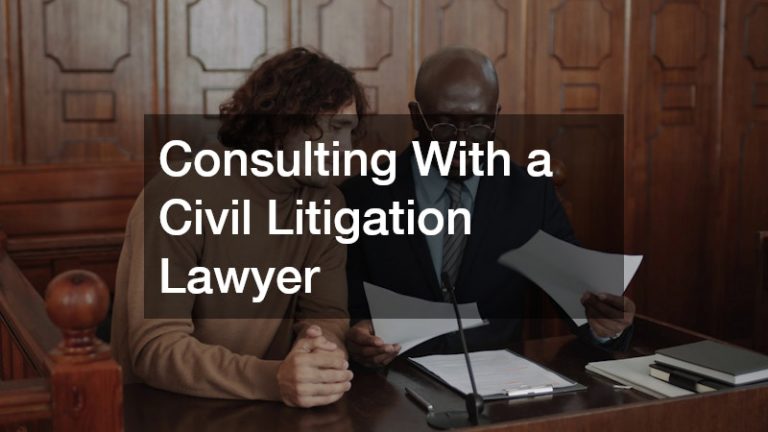

A misdemeanor on your record can feel overwhelming, especially when you’re applying for a job. Many people worry that employers will automatically reject them or that a single mistake from years ago will ruin their chances. The reality is much more complex. Not all misdemeanors impact employment the same way, and many companies are willing to hire applicants with a record—especially when the offense is minor or old.
This comprehensive guide will help you understand how background checks work, what employers look for, how different types of misdemeanors are viewed, and what you can do to improve your chances of getting hired. Whether you’re applying for your first job, returning to the workforce, or switching careers, this article breaks down everything you need to know in simple, helpful terms.
What Shows Up on a Background Check?

Before worrying about how a misdemeanor affects your application, it helps to understand what employers actually see. A background check is a screening process that verifies a person’s identity, history, and qualifications. Depending on the job and the employer’s requirements, the check may include:
Common Components of a Background Check
- Criminal records (misdemeanors, felonies, pending charges)
- Employment history
- Education verification
- Driving records (for transportation-related jobs)
- Credit reports (for financial or trust-based roles)
- Professional licenses or certifications
Not all employers run every type of check. Most companies only look up criminal history and employment history unless the job requires additional screening.
Do Misdemeanors Show Up on Background Checks?
Yes. Misdemeanors typically show up on standard criminal background checks. They are less serious than felonies, but they are still part of your criminal record unless sealed or expunged.
How Long Do Misdemeanors Stay on Record?
- In many states, misdemeanors stay on your record permanently unless you take legal action to remove them.
- Some states restrict how far back employers can look (often 7 years).
- Expungement laws vary, and some offenses can be removed sooner than others.
If you’re unsure about your record, it’s a good idea to run a personal background check so you can see exactly what employers will see.
Will I Pass a Background Check With a Misdemeanor?
The short answer: Yes, many people with misdemeanors do pass background checks and get hired.
But whether you will pass depends on several factors. Employers don’t just look for a clean record—they look at context.
What Employers Consider
- Type of misdemeanor
- How long ago it happened
- Whether it relates to the job
- Your behavior since the offense
- Company policy and state laws
- Whether the role involves trust, safety, or sensitive information
For example:
- A 10-year-old shoplifting charge is unlikely to impact a warehouse job today.
- A recent DUI might matter for a delivery driver position.
- A disorderly conduct charge might not matter for most jobs at all.
Employers weigh the risk and relevance—not just the offense itself.
Types of Misdemeanors and How They Affect Employment
Not all misdemeanors are equal. Some may have almost no impact on job opportunities, while others can be more serious in the eyes of employers.
Below are common categories of misdemeanors and how employers typically view them.
1. Traffic-Related Misdemeanors
Examples:
- DUI
- Reckless driving
- Driving without a license
Impact on Employment
- High impact for jobs that involve driving or machinery
- Low to moderate impact for office or administrative jobs
Many non-driving industries overlook older traffic offenses.
2. Theft-Related Misdemeanors
Examples:
- Shoplifting
- Petty theft
- Receiving stolen property
Impact on Employment
These offenses can raise concerns about honesty, particularly for:
- Retail jobs
- Cash-handling positions
- Finance or accounting
- Roles requiring access to valuables
However, older theft cases—especially from teenage years—often matter less if you can show maturity and positive change.
3. Violent Misdemeanors
Examples:
- Assault
- Domestic disputes
- Disorderly conduct
Impact on Employment
Violence-related offenses are taken seriously, especially for:
- Caregiver roles
- Security positions
- Jobs involving vulnerable groups
- Customer-facing roles
Employers look at context, time passed, and rehabilitation.
4. Drug-Related Misdemeanors
Examples:
- Possession
- Paraphernalia
Impact on Employment
Many employers are more lenient today, especially with older possession charges.
However:
- Healthcare
- Education
- Government roles
often have stricter rules.
5. Property or Vandalism Offenses
Examples:
- Trespassing
- Vandalism
- Property damage
Impact depends on the job. These typically matter less in industries where trust concerns are minimal.
Industries That Are Strict About Misdemeanors

Some employers have legal or policy-related restrictions that force them to screen out certain offenses.
Industries Where Misdemeanors Matter Most
- Healthcare (patient safety concerns)
- Law enforcement
- School systems
- Government jobs
- Financial institutions
- Transportation (CDL-required roles)
- Security services
In these fields, even minor offenses may require additional review or automatic disqualification.
Industries More Open to Hiring People With Misdemeanors
Many companies understand that good employees can make mistakes. These industries often have more flexible hiring practices:
- Hospitality (hotels, restaurants)
- Retail (depending on the misdemeanor type)
- Construction
- Warehousing
- Manufacturing
- Landscaping
- Food service
- Call centers
- Technology roles
Strong work history and good references can also help overcome concerns.
Key Factors That Determine If You’ll Pass the Check
Passing or failing isn’t always black and white. Employers look at specific details to decide whether a misdemeanor matters.
1. Age of the Offense
Older misdemeanors are viewed as less relevant—especially if you haven’t had issues since.
2. Severity
Nonviolent or low-level misdemeanors are often treated lightly.
3. Job Relevance
A financial misdemeanor matters more for a bank job than a warehouse job.
4. State Laws
Some states limit how far back employers can look or restrict employment discrimination.
5. Your Explanation
Employers often care more about honesty than the offense itself.
How to Improve Your Chances of Passing a Background Check
Even with a misdemeanor, there are many steps you can take to increase your chances of getting hired.
1. Be Honest on the Application
If the application asks about criminal history, answer truthfully.
Employers often reject candidates for dishonesty—not the offense.
2. Prepare Your Explanation
Be ready to discuss:
- What happened
- What you learned
- How your behavior has changed
- How long ago it occurred
Keep your explanation short, respectful, and positive.
3. Gather References
Professional references can help reassure employers about your character and reliability.
4. Highlight Rehabilitation
If applicable:
- Completed counseling
- Classes or training
- Community service
- Steady employment since the offense
These show responsibility and growth.
5. Explore Expungement
Many states allow expungement of certain misdemeanors. Expunged records do not appear on most background checks.
Consult a lawyer or legal aid clinic to see if you qualify.
When a Misdemeanor Might Prevent Employment
Not all misdemeanors block opportunities, but some are more likely to do so. In some cases, these may be considered misdemeanors that prevent employment, depending on the industry and job requirements.
Situations where a misdemeanor may cause a problem include:
- The offense directly relates to job duties
- The employer has legal restrictions
- The position requires public trust or security clearance
- The offense is recent or repeated
Even so, many people with misdemeanors successfully find work by applying to the right industries and presenting themselves professionally.
Your Legal Rights During Background Checks
Employers must follow federal laws when running background checks.
Your Rights Under the Fair Credit Reporting Act (FCRA)
- Employers must ask for your permission before running a background check.
- You must receive a copy of the report if they plan to reject your application.
- You have the right to dispute incorrect information.
- You must be given reasonable time to correct errors.
Ban the Box Laws
Many states and cities limit when employers can ask about criminal history.
These laws help applicants get fair consideration based on qualifications first.
How to Recover From a Failed Background Check
If you’re denied a job because of a misdemeanor, it doesn’t mean your job search is over.
Steps to Take
- Ask the employer for details (they must provide a copy of the report).
- Review the report for errors.
- Consider applying to companies with fair-chance hiring policies.
- Work with a career counselor or reentry organization.
- Gather strong references for future applications.
- Explore legal options like expungement.
Many people who fail one background check succeed on the next one.
Practical Tips for Job Hunting With a Misdemeanor
1. Choose the Right Industries
Apply to fields known to hire applicants with records.
2. Strengthen Your Resume
Highlight skills, training, and accomplishments.
3. Practice Your Interview
Prepare how you’ll talk about the misdemeanor, if asked.
4. Stay Positive
Confidence matters. Employers respond well to sincerity and professionalism.
Conclusion
A misdemeanor on your record doesn’t mean the end of your job prospects. Many people with past mistakes successfully find work, build strong careers, and move forward. Employers look at context, honesty, and personal growth—not just the offense itself.
Understanding how background checks work, knowing your rights, and preparing a strong application can dramatically improve your chances of passing a background check. And with persistence, the right job search strategy, and a focus on your strengths, you can overcome the challenges and find meaningful employment.
If you’re unsure about your situation, consider speaking with an employment lawyer, career advisor, or reentry specialist who can help you understand your rights and options.




